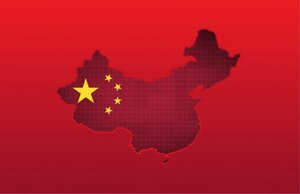South and North Jeolla Province
Gwangju of South Jeolla is the tip of the spear for the Chinese Dream. This is where the Consulate General of The People’s Republic of China is located (Just a short trip across the sea to Southwest China). When Lee Nak-yeon, who was elected prime minister of the Moon administration and ran in the 21st general election, was the governor of South Jeolla Province in 2015, he said, “I hope that Korea and Jeonnam will join together in the One belt, One road plan. It is a symbol of China’s dream – the achievement of joint prosperity.”
In 2007, Sehan University established a Confucius Academy in cooperation with Qingdao University in China. It hosted the 9th Korean-Chinese drawing contest for elementary school students in Mokpo, Yeongam, and Muan county. It also operates a Chinese experience village from the youth. In addition, the first Muan High School Confucius Institute in the western Jeonnam area opened on February 20, 2019, teaching the Chinese language and Chinese culture to students and local residents.
By the expected effect of these activities, it improves the understanding of Chinese language and culture through early education, and contributes greatly to the development of the local economy by cultivating necessary human resources in connection with Chinatown that is being promoted by Mokpo City.
In addition, through the establishment of the nation’s first Chinese village, it motivates the Chinese government to seek exchange and cooperation with local governments in Korea.
The Confucius Institute at Woosuk University, Jeonju, Jeollabuk-do, was established in 2009, in cooperation with Shandong Normal University in China, with the approval of the Chinese Ministry of Education. Chinese officials later visited on October 24, 2018 to film the Silk Road Video Project. The vice-president of the Hanban Confucius Institute Headquarters (Chinese vice Minister of Education) actively supports this initiative.
Buan county in South Korea is the first local government to sign an MOU with the Woosuk University Confucius Institute in 2014 to create a special zone for Chinese Education and Culture. The agreement facilitates cooperation with Chinese education and cultural exchange for elementary, middle, high school students, public officials and ordinary citizens.
The main educational program of Honam University’s Confucius Institute is China’s top-level course focused on the Chinese Communist Party’s One Belt, One Road Initiative and Chinese-centered belief and reorganization of the world order.
Honam University also donated 10,000 “KF94” masks (Coronavirus prevention) to Hanban, the Ministry of Education of China; Wuhan City, Hubei Province; and Hunan University in Hunan Province this past winter. In response, the head of China’s Confucius Institutes sent a letter of gratitude.
In addition, there are Confucius Institutes at Wonkwang University, Hwasan Middle School, Yeosu Jinsung Girls’ High School, Muan High School, and Gochang Buk High School in Jeollanam-do. They carry out educational and cultural exchanges through the Consulate General of China in Gwangju.
South and North Chungcheong area
The Confucius Academy of Soonchunhyang University, located in Asan, Chungcheongnam-do, was established in September 2007 in cooperation with Tianjin Foreign Studies University in China, and won the “Excellent Confucius Academy Award” among the Confucius Academies around the world.
Soonchunhyang University established the Asan City Youth Education and Culture Center “Shanhai Pass” in 2010 and opened a Confucius Institute in 2015. It became a center of Chinese cultural learning and cultural exchange between South Korea and China. The Asan High School Confucius Institute was opened with the aim of cultivating the next-generation of global China specialists.
In 2017, the Confucius Institute of Cheonan High School was established, and imported Chinese native teachers and conducted Chinese language and cultural activities at the elementary school level.
The institute also operates a preparatory group for studying abroad, especially for students with special talents in language. It holds after-school programs for schools in Cheonan City (for 30 elementary, middle school students). The institutes also focus on Chinese language and cultural education targeting the local community.
The Confucius Institute, installed in South Korea in 2004, were established as a key part of the One Belt, One Road Initiative to slowly influence the culture and politics of countries along the Silk Road. These institutes are a strategic tool, created by Xi Jinping, to implement a China centered cultural system and ideology. While building their traditional hard power tools, such as the economy and military China is also deeply investing in soft power influencers represented by the establishment of Confucius Institutes across the world.
So far, programs and events conducted by Confucius Institutes in South Korea focus solely on the dogmatic political ideology of the Chinese Communist Party. This ideology is in direct conflict with the values of liberty, equality, and liberal democracy. As they spread, these institutes subvert the liberal democratic system around the world, and are no simply language education institutes, but a full frontal attack on democratic societies.
There are over 30 China towns built in South Korea with plans to build more in the future. Even now there are plans and ongoing development for one of the largest China towns in South Korea to exist directly outside of Camp Humphreys, in Pyongtaek South Korea.
With the combination of Chinese ideology and cultural penetration through Confucius Institutes with the establishment of China towns, some are already considered a legal province of the People’s Republic of China. Not a single South Korea politician has spoken up against this danger. The political ground has shifted so quickly in the direction of China, that South Korean politicians cannot even be advocates for the US-ROK alliance – an alliance that was forged through blood, sweat, and tears. The US-ROK alliance, together, allowed both the US and South Korea to prosper. Why now when South Korea is a global economic, political, and cultural power, ready to carry the light of democracy in East Asia and the world, is the US-ROK alliance beginning to falter?
http://gwangju.china-consulate.org/kor/
http://busan.chineseconsulate.org/kor/xw/t1720548.htm
http://busan.chineseconsulate.org/kor/xw/t1720549.htm
http://kongzi.andong.ac.kr/board/index.php
https://www.kongzi.ac.kr/main.php
http://gongja.woosuk.ac.kr/2013/inner.php?sMenu=A4000
https://gongja.honam.ac.kr/sub.jsp?sID=0402
http://www.xn--ob0btg19m4mai66amijyvfn8ee7n9seuzx9za.com/main/index.html



